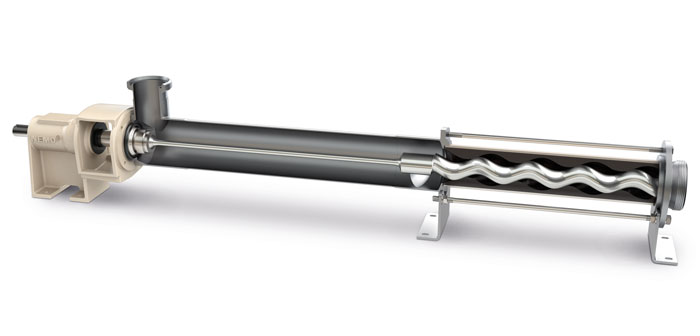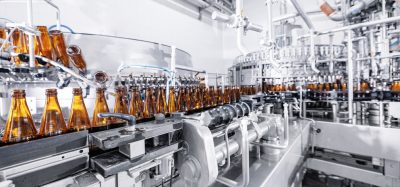Clean and smooth: Special hygienic pump enables efficient yoghurt conveyance
- Like
- Digg
- Del
- Tumblr
- VKontakte
- Buffer
- Love This
- Odnoklassniki
- Meneame
- Blogger
- Amazon
- Yahoo Mail
- Gmail
- AOL
- Newsvine
- HackerNews
- Evernote
- MySpace
- Mail.ru
- Viadeo
- Line
- Comments
- Yummly
- SMS
- Viber
- Telegram
- Subscribe
- Skype
- Facebook Messenger
- Kakao
- LiveJournal
- Yammer
- Edgar
- Fintel
- Mix
- Instapaper
- Copy Link
Posted: 26 April 2017 | NETZSCH Pumpen & Systeme GmbH | No comments yet
NETZSCH detail new special hygienic pump aimed at enabling efficient yoghurt conveyance.


Yoghurt is one of the exceptionally demanding conveyor media in the food sector: on the one hand, it is vital to avoid strong shear forces so as to protect the valuable bacteria cultures and prevent separation of the different phases. On the other hand, the product, like almost all dairy produce, is critical in terms of hygiene, which means that all pump materials have to meet food safety requirements and comprehensive cleaning has to be carried out regularly.
When setting up a new yoghurt line, a large dairy therefore decided on the NEMO aseptic pump manufactured by NETZSCH Pumps & Systems. The main feature of this type of pump is the progressing cavity principle which it is based on. This involves a helix rotor turning in an oscillating motion in a stator that is geometrically adapted to it. This process produces conveying chambers with the same shape in which the medium is transported from the inlet to the discharge side continuously and above all smoothly, free from any pressure fluctuations, pulsation or shear forces.
Design and choice of materials guarantee food safety
In order to meet the high hygiene requirements, it is a flexible rod, rather than open joints or joints filled with oil, that connects the drive to the shaft. This is heat-shrunk with the rotor and connection point, so that the transition is hermetically sealed. Because there is no friction between components at the connection, there is hardly any wear on the flexible rod and it needs no lubrication or seal, which means maintenance costs are very low. The materials used for the application in the dairy were stainless steel – in a polished version for the wetted parts – and a stator made of FDA-compliant EPBPF elastomer, while an SHJ/MG1 double seal was used as the mechanical seal.
The layout of the pump was also specially designed for the CIP process: a bypass line and tangential cleaning ports ensure that the required cleaning fluid flow speed of 1.5 m/s is achieved throughout the system. In addition, the streamlined geometry of the conveying area prevents dead spaces or product deposits and enables the pump to be comprehensively cleaned and completely emptied.
To compensate for any possible fluctuations in the product flow, the pump was also combined with a variable gear and a frequency inverter. This means that the system conveys up to 20 m³ of yoghurt per hour at 10 bar in continuous operation without any problems – and without impairing the high quality of the demanding product.
Related topics
Equipment, New product development (NPD), Pumps & Valves, Technology & Innovation










